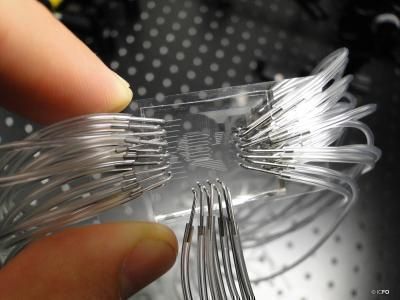Cocaine addiction: Canadian research shows it is possible to block it in mice
A modern scourge that was thought to be linked only to the gilded world of high bureaucracy and entertainment. And yet, cocaine is among the hard drugs one of the most prevalent even among the “more popular” classes, with thousands of people who are or continue to become addicted to it. Now a study published in Nature Neuroscience ventures that it is possible to block its addiction, at least in mice.
The research was conducted by a group of researchers from the’University of British Columbia in Canada who modified mice in the laboratory to make them more resistant enough to confirm the decisive role that genetics and biochemistry would play on addiction. Guinea pigs were genetically modified in order to have higher levels of the protein that helps cells bind together, called cadherin. The substance in question acts in the brain by strengthening connections between neurons (synapses). And learning ’including learning about drug-induced pleasure – requires strengthening certain synapses.
So researchers thought that giving mice more cadherin would make them more prone to cocaine addiction. But the exact opposite has occurred. Analyzing the brain tissue of genetically modified mice, researchers found that higher amounts of cadherin instead act as ‘barrier’ to the emergence of addiction, because it prevents a certain neurochemical receptor from migrating from the nerve cell’s core to the synapse.
Investigation elucidates a new mechanism of addiction that in the future could help understand who is most vulnerable to drug’abuse. Although one of the authors, Shernaz Bamji hinted that the road of research is still long because: “we would need to find a molecule that blocks drug-induced memory formation without interfering with the ability to remember important things. The’ideal would be to find a molecule that blocks the formation of a memory that leads to drugs, without interfering with the ability to remember important things”. Stays grounded pharmaceutical chemist Antonello Mai of Rome’s Sapienza University interviewed about. “Cadherin administration cannot solve the problem of drug’abuse – he notes – because the brain structure cannot always be rigid: it must also have moments of neuronal plasticity, to avoid unpredictable consequences. The study is interesting and useful in increasing our knowledge of neuronal mechanisms, but from here to having a therapeutic treatment on’humans is a long way off;.
However, the circumstance remains that despite decades of studies for Giovanni D’Agata, president of the “Sportello dei Diritti,” addiction to this type of drug still remains difficult to defeat except through long therapeutic paths that very often require hospitalization in specialized clinics or therapeutic communities. That is why it is hoped that research of this kind can bring solutions that make the detoxification and rehabilitation paths less tortuous and longer lasting.



